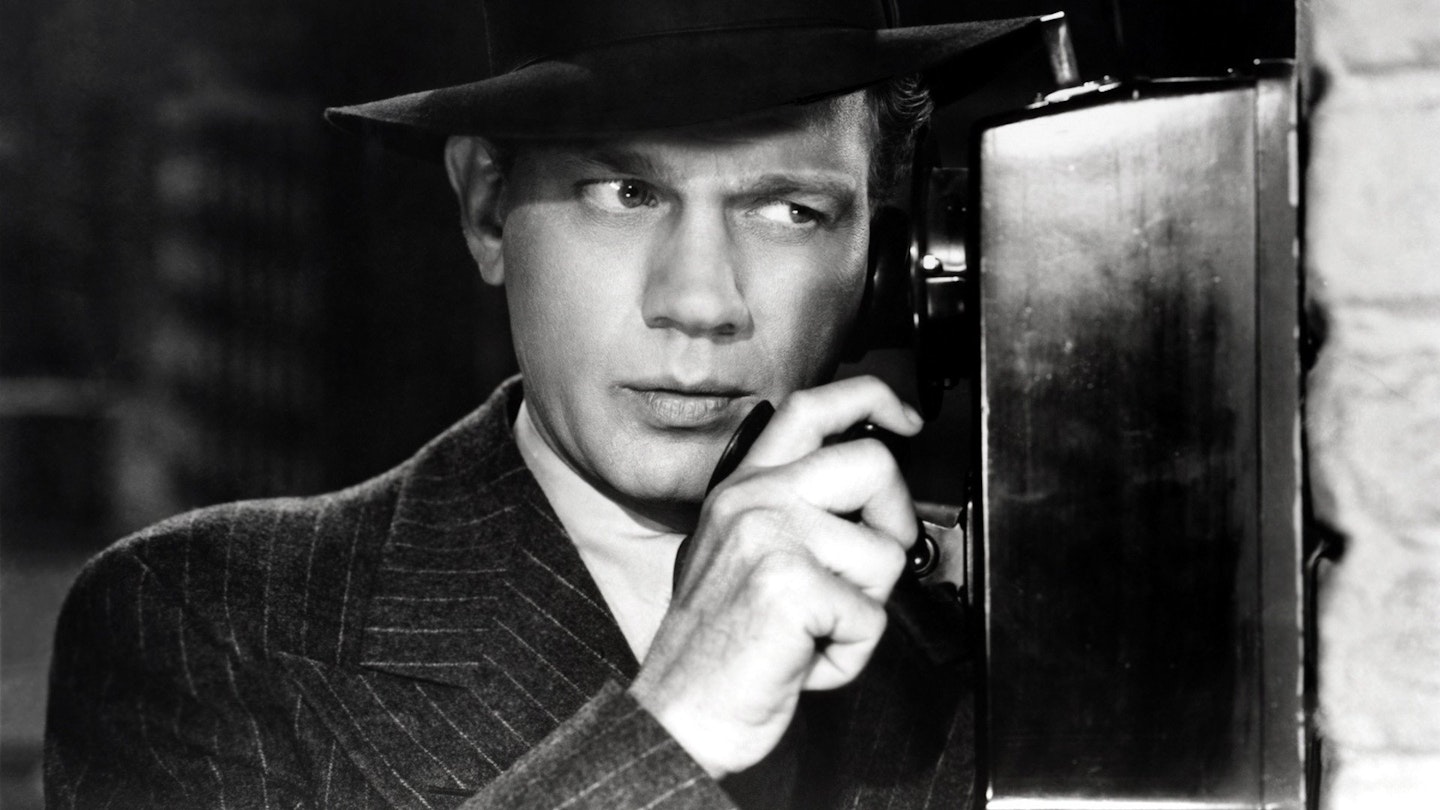In the first scene a train enters the station, filling it with black smoke – and from the first it is clear that all is not right with Uncle Charlie. He might look alright and have a voice that charms, but he is the devil in disguise.
Hitchcock often said this was his favourite film – and certainly the one he found easiest to defend from his critics, in that it had the most plausible senario. It’s unusual in having a central villain who is almost the hero. Certainly he is hero worshipped by his niece, and yet she alone learns his true nature and ultimately (accidentally) causes his death. The townsfolk around are oblivious and talk of him throughout as a wonderful man, only a detective who has infiltrated the family household posing as a censor suspects otherwise, and this allows him to form a bond with the young Charlie and in the end he is the only other person who gets to find out what really happened and while he wins the girl, it’s clear that her heart will always truly belong to her Uncle.
The Merry Widow waltz is regularly repeated as a theme with sinister undercurrents since Uncle Charlie’s speciality is offing rich widows. Images of whirling dancers reappear as the two Charlies get caught up in a dance towards an inevitable fate. Their close relationship is symbolised by near telepathy between them, the niece instinctively reading his thoughts and yet emotionally the Uncle is the less devoted of the two, plotting her death in a detached way, and in some ways his death is seen as comeuppance for his lesser devotion.
This is certainly one of Hitchcock’s most satisfying thrillers, mostly thanks to Wright and Cotten’s believable relationship. It also has that aspect of life behind the white picket fence being not quite so rosy as it first appears, a theme David Lynch was later keen to exploit in films like Blue Velvet. While Shadow Of A Doubt is less extreme than that, there’s still something not quite right about the love that bonds Charlie and her Uncle, and the idea of the serial killer being the most attractive character in the movie was something that Hitchcock was to exploit later in Psycho.
